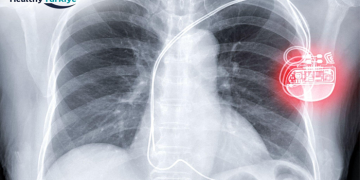If you are experiencing issues with your veins, arteries, or lymphatic system, you may be referred to a vascular surgeon. These specialists are trained to diagnose and treat a wide range of vascular conditions, including varicose veins, deep vein thrombosis, and peripheral artery disease. If you are scheduled for a consultation with a vascular surgeon, here is what you can expect.
Preparing for Your Appointment
Before your appointment, you may be asked to provide a medical history and a list of all medications you are currently taking. You may also be asked to fast for several hours before your appointment if your doctor plans on performing any tests or procedures. It’s important to bring any relevant medical records or imaging studies with you to your appointment.
The Consultation
During your consultation, your vascular surgeon will ask you about your symptoms and medical history. They will also perform a physical exam, paying particular attention to your veins, arteries, and lymph nodes. Your doctor may also order additional tests or imaging studies to help diagnose your condition.
If you are seeing a vascular surgeon for varicose veins, you may be asked to stand up so that your doctor can examine your legs. Your doctor may also perform a Doppler ultrasound to assess blood flow in your legs. This is a non-invasive test that uses sound waves to create images of your blood vessels.
Treatment Options
Once your vascular surgeon has diagnosed your condition, they will discuss your treatment options with you. Depending on your diagnosis, your doctor may recommend lifestyle changes, medications, or surgery.
For example, if you have varicose veins, your doctor may recommend wearing compression stockings to improve blood flow and reduce symptoms. They may also recommend sclerotherapy, a minimally invasive procedure that involves injecting a solution into the affected veins to close them off. In more severe cases, your doctor may recommend endovenous laser treatment or radiofrequency ablation, which use heat to destroy the affected veins.
Aftercare
After your appointment, your vascular surgeon will provide you with instructions on how to care for yourself and manage your condition. This may include instructions on how to care for your incisions if you had surgery, or how to manage any pain or discomfort you may be experiencing.
Your doctor will also schedule follow-up appointments to monitor your progress and adjust your treatment plan as necessary. It’s important to attend these follow-up appointments to ensure that your condition is properly managed and to catch any potential complications early.
Conclusion
A consultation with a vascular surgeon can help diagnose and treat a wide range of vascular conditions. By understanding what to expect during your appointment, you can better prepare yourself and make the most out of your visit. If you are experiencing symptoms related to your veins, arteries, or lymphatic system, schedule an appointment with a vascular surgeon today.
For more information on varicose veins and vascular surgery, visit the varicose vein specialist Houston.














